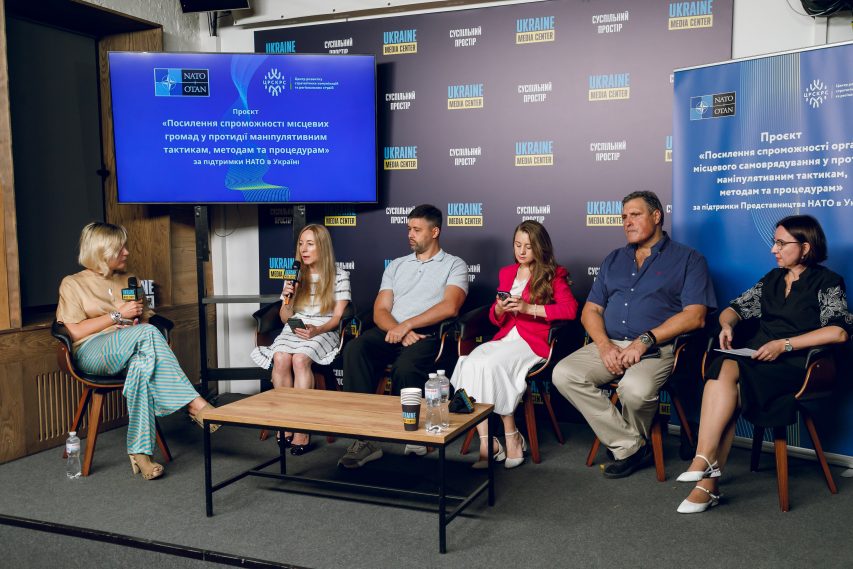
Responding to modern threats: Ukraine launches training for communities to counter russian manipulation
Ukraine has introduced a new training program aimed at helping local communities recognize and counter russian disinformation, given the critical role of information security in the country’s broader defense architecture.
The initiative is being developed by the Center for Strategic Communications and Regional Studies Development, an NGO established last year out of the academic community of Taras Shevchenko National University of Kyiv. Its mission is to create practical tools for communities to detect and resist manipulation by hostile actors.
“With support from the NATO Office in Ukraine, the Center for Countering Disinformation at the National Security and Defense Council, and the Security Service Academy, we have designed a four-module program combining training and practical exercises,” said Zhanna Patsiora, director of the Center. “The course equips local opinion leaders, government officials, and communication officers with tools to recognize influence campaigns, work effectively with local media, and strengthen public communication. What makes the program unique is its hands-on focus, we want communities to gain skills they can use immediately on the ground.”
Vineta Kleine, head of communications at NATO’s Representation to Ukraine, noted that community resilience against russian manipulations is also one of the seven baseline requirements for resilience that NATO has established.
“Resilience of communities is one of the key aspects, and strategic communications are part of this resilience ecosystem. It means that if society can also withstand information attacks, hybrid attacks, part of which are information attacks. It means that society is resilient. And it boils down to local communities: how they, on the ground, can tackle and address information attacks. We know that one of the ways russia is attacking Ukraine, and not only Ukraine but also allies is disinformation and information manipulations. That is why, for us, for NATO allies, strategic communications is a defensive line and a defensive shield against disinformation, hybrid threats, and also a compass that guides societies with trusted, transparent, and fact-based narratives rooted in democratic values, values which represent NATO, NATO members, and Ukraine,” she said. “I was truly glad to support this project because it gave us a venue to connect with local communities and with those who work with information across the country. I am also glad that we have a strong pool of subject matter experts, Ukraine’s communicators and communication specialists, who will be leading this course. Because we all actually learn from Ukraine, we are working together to become stronger,” Kleine stressed.
Ivan Slichko, head of the media literacy department at the Center for Countering Disinformation, said russia often tailors manipulative tactics around divisive issues. “They pick a sensitive topic for Ukrainian society, or a half-truth, and then distort it by adding emotional overtones. That’s a very effective technique,” he explained.
Yuliia Yanchuk, deputy director of the Department of Strategic Communications and Promotion of Ukrainian Culture and head of its global outreach division, added that the new course builds on an extensive foundation. Over the past two years, she said, Ukraine has held over 200 trainings on disinformation, reaching over 2,000 civil servants.
Community representatives who wish to participate must register and pass a selection process. Each community will receive an invitation with detailed instructions. In its first phase, the program is expected to provide basic skills to roughly 300 participants.
Registration details for the selection process are available via link https://docs.google.com/forms/d/e/1FAIpQLSddjEhK8dQUBbjKmTYj_FLZzmofQDAz_kplz29j_l5b1pgMEw/viewform
Read more: https://mediacenter.org.ua/news
 Back
Back 